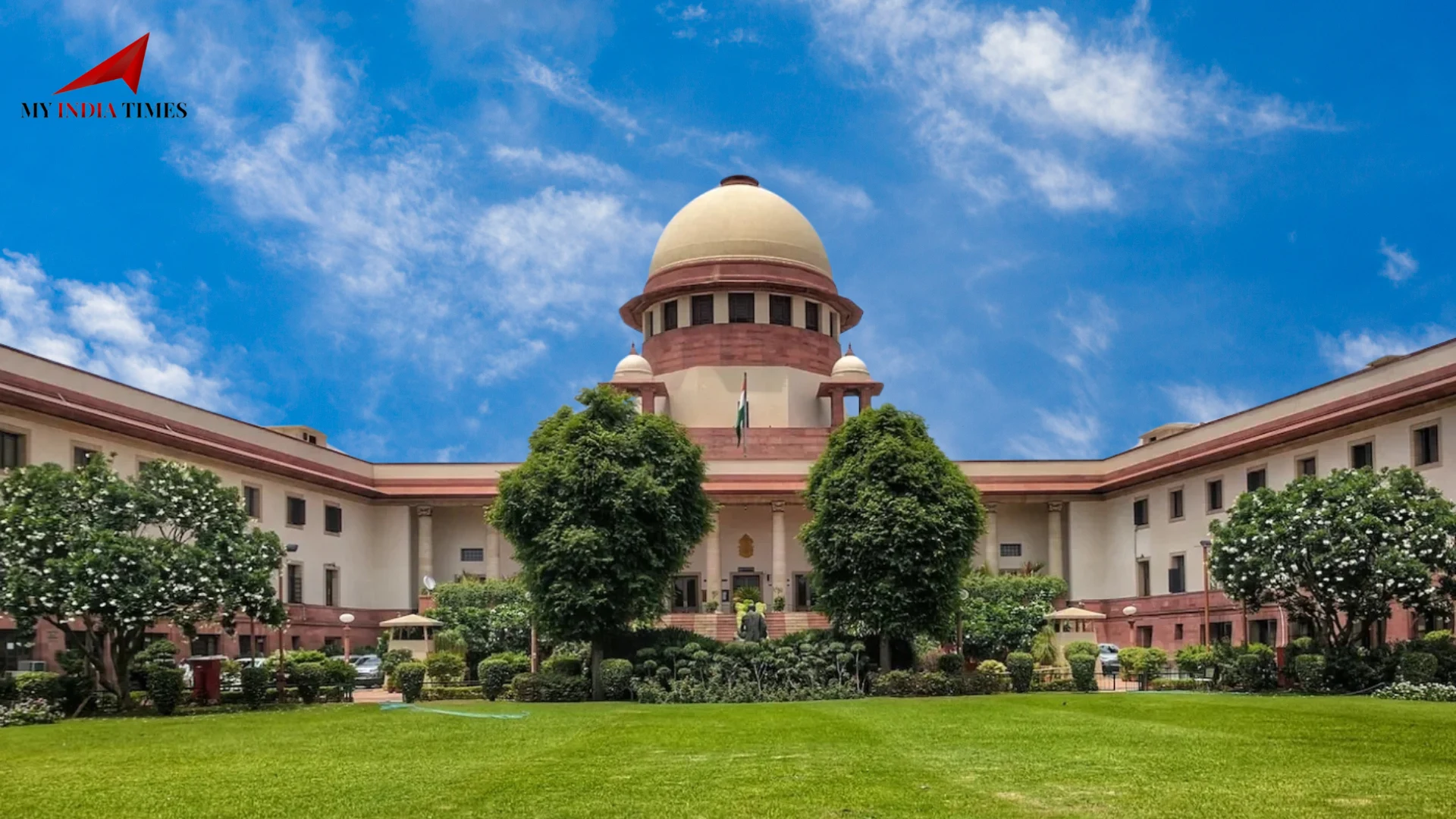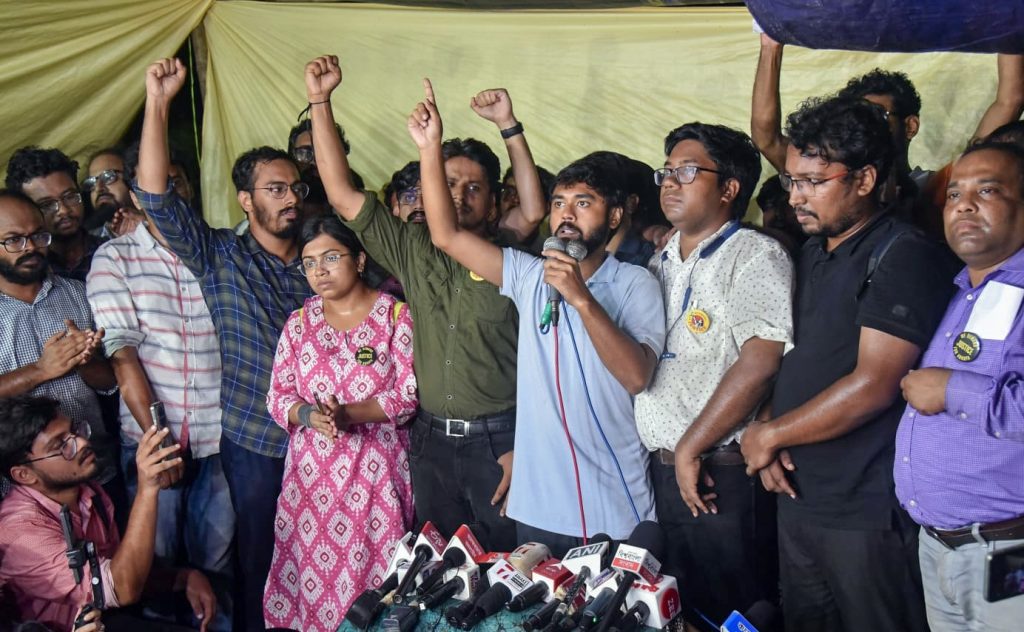Home / west-bengal / Supreme Court Imposes ₹10 Lakh Penalty on West Bengal Government for Delayed and Baseless Petition Against Employee's Retiral Dues
Supreme Court Imposes ₹10 Lakh Penalty on West Bengal Government for Delayed and Baseless Petition Against Employee's Retiral Dues
By: My India Times
2 minutes read 58Updated At: 2025-02-21

In a landmark judgment, the Supreme Court of India has imposed a ₹10 lakh fine on the West Bengal government for filing a delayed and unfounded petition against a retired employee's rightful dues, which remained unpaid for 18 years. The court directed that this amount be paid to the retired employee within four weeks.
Background of the Case
The case centers around a government employee who retired in 2007 but had not received his full retirement benefits, subsisting only on a provisional pension. The employee was initially subjected to disciplinary proceedings in 1989 but was exonerated in 1994. Despite this, a show-cause notice proposing punishment was issued in 1997, which did not lead to any further action at that time. Surprisingly, in 2010, three years post-retirement, the state issued another show-cause notice for the same alleged misconduct from decades earlier. This prolonged delay and repeated issuance of notices prompted the retired employee to seek legal recourse.
High Court's Intervention
Aggrieved by the state's actions, the retired employee approached the Calcutta High Court. The High Court quashed the disciplinary proceedings and directed the West Bengal government to release all pending dues to the petitioner. Instead of complying, the state challenged this order in the Supreme Court, filing the petition with a substantial delay of 391 days and without a satisfactory explanation for the delay.
Supreme Court's Observations
A bench comprising Justices Vikram Nath and Sandeep Mehta presided over the matter. The Supreme Court conveyed its disapproval of the state's methodology, labeling the petition as "entirely frivolous and vexatious." The bench acknowledged the significant hardship endured by the retired employee, stressing that despite 18 years since his retirement, he had yet to receive his rightful entitlements and was reliant on a provisional pension. The court underscored the state's negligence and lack of accountability in resolving the legitimate claims of its former employee.
Imposition of Penalty
In its ruling, the Supreme Court dismissed the state's petition on grounds of both delay and lack of merit. The court imposed a ₹10 lakh cost on the West Bengal government, mandating that this amount be paid to the respondent (the retired employee) within four weeks. Additionally, the court ordered the state to clear all pending retiral dues within the same timeframe. This decision underscores the judiciary's commitment to upholding the rights of retired employees and ensuring that they are not subjected to unnecessary legal battles and administrative apathy.
Implications of the Judgment
This landmark judgment serves as a stern reminder to governmental bodies about the importance of timely and fair resolution of employee-related matters. The imposition of a substantial penalty reflects the court's intolerance towards undue delays and baseless litigations that adversely affect individuals' livelihoods. It also sets a precedent, emphasizing that state authorities must act responsibly and honor their obligations towards employees, both current and retired.
....
In a landmark judgment, the Supreme Court of India has imposed a ₹10 lakh fine on the West Bengal government for filing a delayed and unfounded petition against a retired employee's rightful dues, which remained unpaid for 18 years. The court directed that this amount be paid to the retired employee within four weeks.
Background of the Case
The case centers around a government employee who retired in 2007 but had not received his full retirement benefits, subsisting only on a provisional pension. The employee was initially subjected to disciplinary proceedings in 1989 but was exonerated in 1994. Despite this, a show-cause notice proposing punishment was issued in 1997, which did not lead to any further action at that time. Surprisingly, in 2010, three years post-retirement, the state issued another show-cause notice for the same alleged misconduct from decades earlier. This prolonged delay and repeated issuance of notices prompted the retired employee to seek legal recourse.
High Court's Intervention
Aggrieved by the state's actions, the retired employee approached the Calcutta High Court. The High Court quashed the disciplinary proceedings and directed the West Bengal government to release all pending dues to the petitioner. Instead of complying, the state challenged this order in the Supreme Court, filing the petition with a substantial delay of 391 days and without a satisfactory explanation for the delay.
Supreme Court's Observations
A bench comprising Justices Vikram Nath and Sandeep Mehta presided over the matter. The Supreme Court conveyed its disapproval of the state's methodology, labeling the petition as "entirely frivolous and vexatious." The bench acknowledged the significant hardship endured by the retired employee, stressing that despite 18 years since his retirement, he had yet to receive his rightful entitlements and was reliant on a provisional pension. The court underscored the state's negligence and lack of accountability in resolving the legitimate claims of its former employee.
Imposition of Penalty
In its ruling, the Supreme Court dismissed the state's petition on grounds of both delay and lack of merit. The court imposed a ₹10 lakh cost on the West Bengal government, mandating that this amount be paid to the respondent (the retired employee) within four weeks. Additionally, the court ordered the state to clear all pending retiral dues within the same timeframe. This decision underscores the judiciary's commitment to upholding the rights of retired employees and ensuring that they are not subjected to unnecessary legal battles and administrative apathy.
Implications of the Judgment
This landmark judgment serves as a stern reminder to governmental bodies about the importance of timely and fair resolution of employee-related matters. The imposition of a substantial penalty reflects the court's intolerance towards undue delays and baseless litigations that adversely affect individuals' livelihoods. It also sets a precedent, emphasizing that state authorities must act responsibly and honor their obligations towards employees, both current and retired.
By: My India Times
Updated At: 2025-02-21
Tags: west-bengal News | My India Times News | Trending News | Travel News
Join our WhatsApp Channel







.webp)


































































































.png)
 (1).png)























